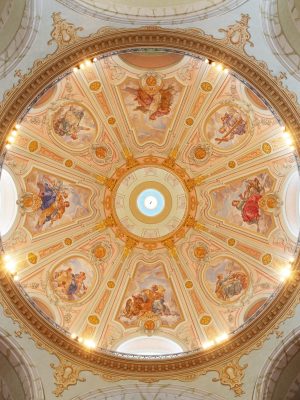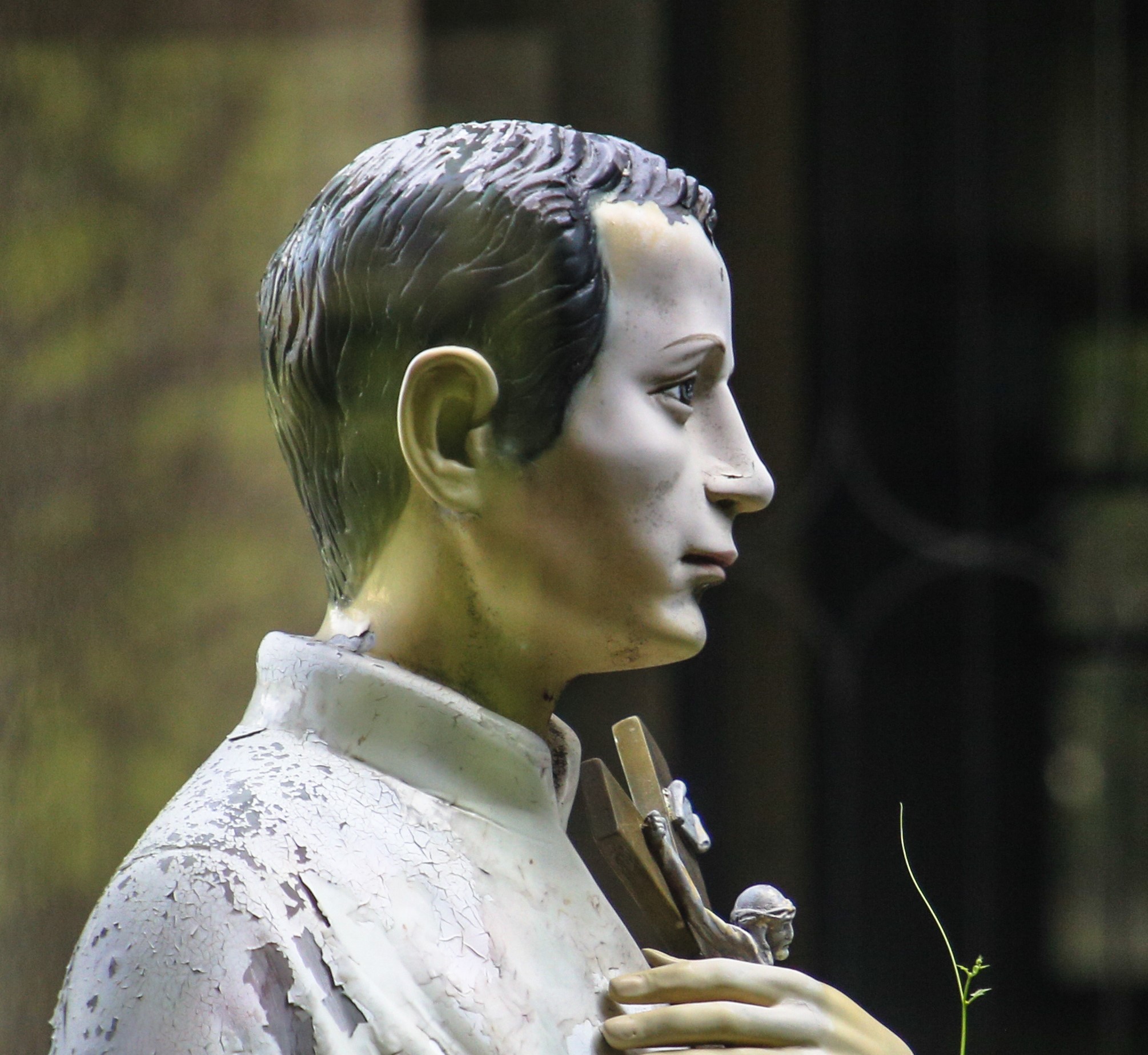His Desire for the Highest Perfection
After the death of Father Cafaro, his first director, Gerard placed himself under the direction of Father Juvenal, a religious of great virtue. To him we are indebted for precious documents on the holy brother’s inner life. He soon saw for himself that Gerard had received from God the gift of reading hearts, and he had personal experience of it.
One day, he was in great anxiety at the thought of not being in the grace of God. Just at this time, Gerard presented himself for Confession. At the end of it, he said: “Father, rejoice, for you are in the grace of God. It is the devil who inspires those black thoughts.” The words surprised the priest, but faithful to his practice of humbling the brother whenever an occasion presented itself, he replied shortly: “You are talking like a madman! You know not what you are saying,” and he dismissed him. But secretly, Father Juvenal thanked God for having so marvelously restored his peace of soul.
What he most admired in his disciple was his perfect obedience, the only security in extraordinary ways. One day, when Gerard was kept in bed by a high fever, Father Juvenal ordered him to shake off his sickness, rise and go to his work. Instantly, the obedient religious was on his feet and well. On another occasion, wishing to test him, the priest ordered him to serve his Mass after having received Holy Communion. The seraphic brother, knowing well that love ravished him out of himself every time he received his Jesus, could not help exclaiming: “But, Father!” “Do what I tell you,” replied the wise director.
The ecstasy did not take place during the Mass, but immediately afterward. “To reach perfection,” says St. Alphonsus, “two things are necessary, desire and resolution.” These two secrets of sanctity we find in Gerard. The perfection to which he aspired was not common and ordinary. He aimed at the highest, hence his heroic vow to do in everything what was most perfect. Under pretext of examining whether it was the Spirit of God that directed him, Father Juvenal ordered him to put in writing his mortifications, his desires and his resolutions. Gerard obeyed. Let us give part of this code of perfection.
“May divine grace be ever in our heart, and may the Most Blessed Virgin preserve it to us! Your Reverence wishes to know my mortifications, my desires, my sentiments, my resolutions, also the precise meaning of the vow that I have made always to do what is most perfect. I am ready to give an account of all this, in order to walk with more security in the way of salvation. Mortifications: Every day, I take the discipline, and I wear an iron chain around my loins. On retiring and again on rising, I make a cross on the floor with my tongue. I put bitter herbs in my food at dinner and supper. I wear a heart of iron points on my breast. I chew bitter herbs three times a day. I recite six Ave Marias, morning and evening, with my face to the ground.”
“On Wednesday, Friday, Saturday and on all vigils, I eat kneeling, and on those days, I leave untasted the fruit at table. On Friday at dinner, I eat less. On Saturday, I fast on bread and water. On Wednesday, Friday and Saturday, during the night I wear a large chain and during the day a still larger one around my waist. Day and night I wear one on my arm. Every eight days, I take the discipline to blood. During novenas, to the aforesaid mortifications, I daily add a discipline, and I take one to blood during the course of the novena, without counting the extraordinary penances for which I ask permission of your Reverence.”
“Desires: I desire to love my God very much, to live always united to Him, to do everything for Him, to conform in everything to His holy will, to suffer much for Him. “Sentiments: Brother Gerard, do thou resolve to give thyself to God without reserve. Do not forget that, in order to become a Saint, something more than continual prayer is needed. It is necessary to do the will of God, to consume oneself for God. Behold what God demands of thee. Be a slave neither of the world nor of self. God present—constant union with God—that is sufficient for thee. All that we do for God is a prayer. Some occupy themselves in this, others in that; my only duty is to do the will of God. Nothing costs when we act for God.”
“On the 21st of September, I had a better understanding of the following truths: If I were dead six years, what high notions would I have? None. It is a very great pain to suffer and yet not to suffer for God. To endure everything is nothing when we suffer for God. I wish to act upon this earth as if there were but God and myself.”
“Reflections: If I should be lost, I lose God; and God lost, what remains to me? What lively faith I ought to have in the Most Blessed Sacrament of the Altar! Lord, grant that I may bear this in mind! Resolutions: O my God, only Love of my heart, I abandon myself forever to Thy divine will! In every temptation and trial, I wish to repeat: Fiat voluntas tua [“Thy will be done”]. I embrace, I adore Thy divine decrees, and I regard them as so many precious pearls that Thou dost deign to offer me.”
This article is taken from a chapter in St. Gerard Majella which is available from TAN Books.









